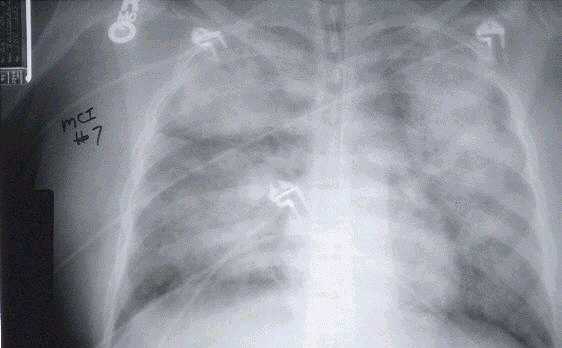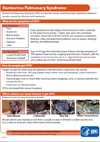Hantavirus Pulmonary Syndrome (HPS)
Hantavirus Pulmonary Syndrome (HPS) is a severe, sometimes fatal, respiratory disease in humans caused by infection with a hantavirus.
Anyone who comes into contact with rodents that carry hantavirus is at risk of HPS. Rodent infestation in and around the home remains the primary risk for hantavirus exposure. Even healthy individuals are at risk for HPS infection if exposed to the virus.
To date, no cases of HPS have been reported in the United States in which the virus was transmitted from one person to another. In fact, in a study of health care workers who were exposed to either patients or specimens infected with related types of hantaviruses (which cause a different disease in humans), none of the workers showed evidence of infection or illness.

Severe HPS. Image courtesy D. Loren Ketai, M.D.
Hantavirus Pulmonary Syndrome Fact Sheet
Tracking a Mystery Disease: The Detailed Story of Hantavirus Pulmonary Syndrome

In May 1993, an outbreak of an unexplained pulmonary illness occurred in the southwestern United States, in an area shared by Arizona, New Mexico, Colorado and Utah known as “The Four Corners”. A young, physically fit Navajo man suffering from shortness of breath was rushed to a hospital in New Mexico and died very rapidly.
- Page last reviewed: February 6, 2013
- Page last updated: February 6, 2013
- Content source:


 ShareCompartir
ShareCompartir
